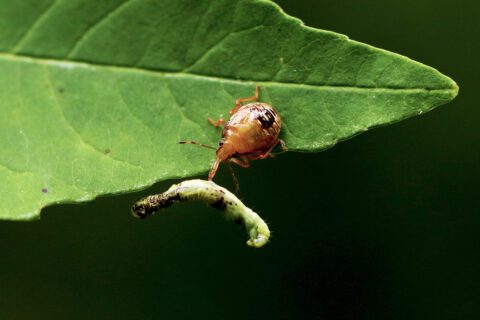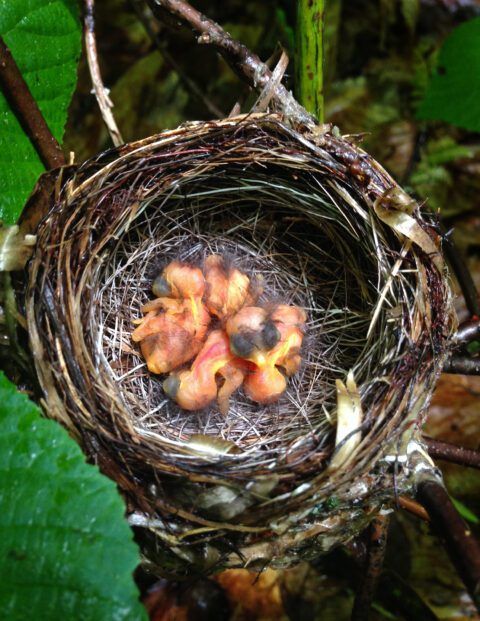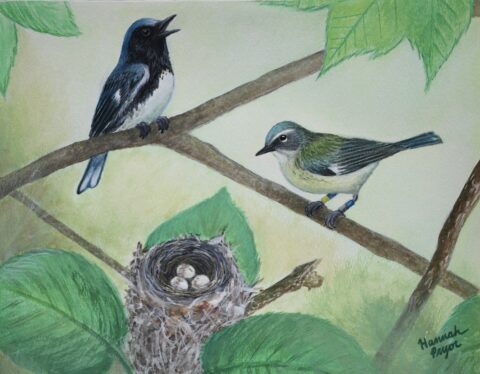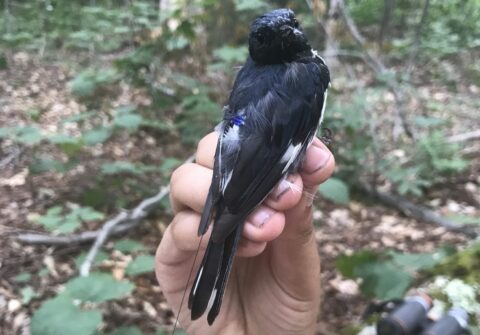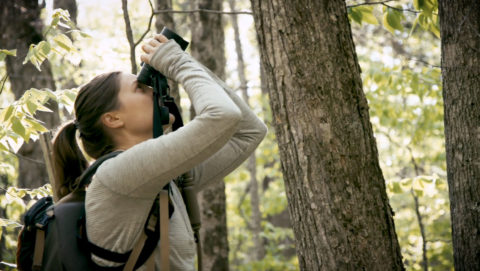 New Paper!
New Paper!Even moderate levels of artificial light at night attract more arthropod predators and reduce the chance that their caterpillars grow up into moths, according to a new study published in Proceedings of the Royal Society B: Biological Sciences, led by undergraduate researcher, John Deitsch, and Director, Sara Kaiser.
 New Paper!
New Paper!Black-throated blue warblers do not manipulate their offspring sex ratios in response to differences in food availability, according to a new study published in Behavioral Ecology and Sociobiology, led by Director, Sara Kaiser, and former undergraduate researcher, Kathryn Grabenstein.
 Secrets of the Forest: My First Week As a Field Tech on the “Blue Crew”. Hannah Pryor ’26
Secrets of the Forest: My First Week As a Field Tech on the “Blue Crew”. Hannah Pryor ’26The lonely wail of a loon echoes across the rose-gold waters of Mirror Lake as the sun breaks over the mountains. First light finds us in the data barn overlooking the water, gearing up for a day in the field…
 A Battle of Wits with a Black-throated Blue Warbler. Amaya Bechler ’24
A Battle of Wits with a Black-throated Blue Warbler. Amaya Bechler ’24Diving through chest-high bushes, a branch in each hand, while yelling incoherently—record scratch—yes, that was me over the summer. You may be wondering how I got into that situation. It all started with a black-throated blue warbler named GBYA…
 The Resilient Forest–The Birds of Hubbard Brook
The Resilient Forest–The Birds of Hubbard BrookNorthern Woodlands produced a new multimedia series called The Resilient Forest “to promote public appreciation of the ecological, economic, and cultural benefits of northeastern forests and to promote interest in keeping forests intact.”

